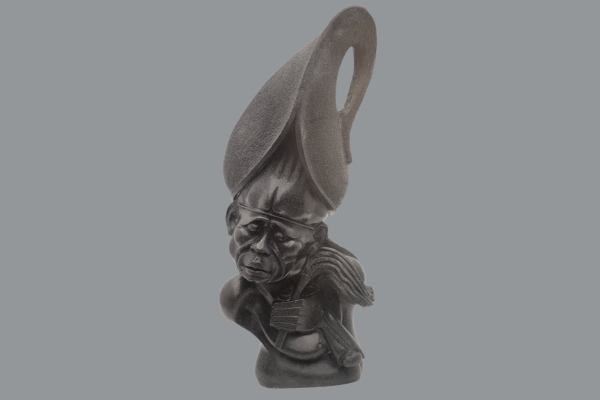The Role of Witch Doctors in Shona Culture
In traditional Shona culture, witch doctors, also known as "sangomas" or "ngangas", play a vital role in the community. They are believed to have spiritual powers and are consulted for a wide range of issues, such as healing the sick, divining the cause of problems, and providing guidance and advice.
Witch doctors are highly respected members of the community and are often consulted before making important decisions. They are believed to be able to communicate with the spirits of ancestors and other supernatural beings, and can use this ability to diagnose and treat spiritual or supernatural causes of illness or misfortune.
carved by Sampson Kuvenguhwa - Artist name Sam Kuve - Shona Sculptor
One of the main roles of the witch doctor is to act as a mediator between the physical and spiritual worlds. They use their spiritual powers to connect with the spiritual realm and help individuals find solutions to problems that may be beyond the physical realm. They also use traditional healing methods, such as herbal medicine, to treat physical ailments.
Witch doctors are also believed to have the ability to remove curses and other forms of negative spiritual influence. They use their spiritual powers to break the curse or remove the negative influence, which is believed to bring about healing and restoration.
Witch doctors also play an important role in rituals and ceremonies, such as initiation ceremonies for young men and women, weddings, and funerals, and in providing protection and guidance for the community. They are often called upon to perform rituals and ceremonies to ensure the success of a particular endeavor or to provide protection from harm.
In addition to their spiritual roles, witch doctors also serve as social and cultural leaders in the community. They are often consulted for advice on a wide range of issues, including personal and community problems. They are respected members of the community and are often called upon to mediate disputes or to provide guidance on important matters.
It's worth noting that in modern-day Zimbabwe, the role of the witch doctor has changed, and the traditional practices are not as prevalent as they once were. With the advent of modern medicine and the decline of traditional practices, the role of the witch doctor has evolved.
Many witch doctors now work in tandem with Western-trained doctors to provide comprehensive health care to their communities. They combine traditional healing methods with modern medicine to provide holistic care to their patients. This collaboration has been beneficial in improving the health outcomes of individuals in their communities.
Despite the changes in the role of the witch doctor, they remain an important part of Shona culture. They continue to play a vital role in the community and are highly respected for their spiritual, social, and cultural contributions.
